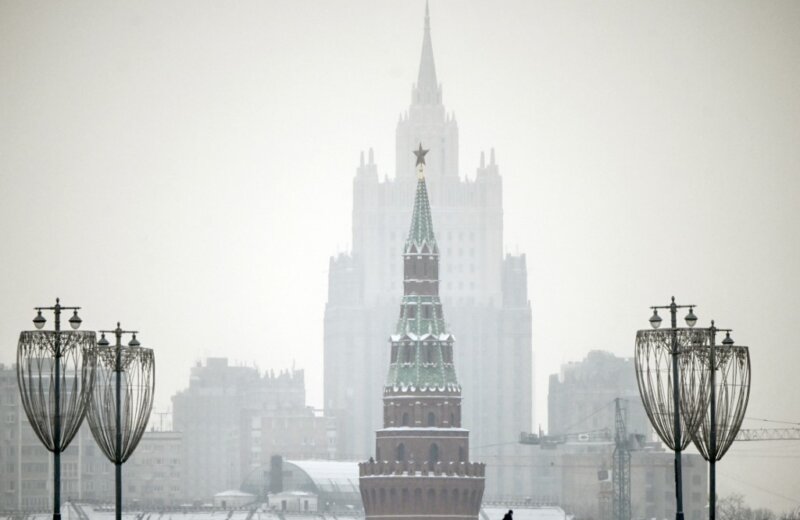Why Belarusians shouldn't be afraid of reforms

Reforms will help the Belarusian economy grow by more than 1% a year / collage by Ulad Rubanau, Euroradio
The Belarusian economy cannot grow without restructuring the public sector, removing barriers to private business, and some other reforms.
While the Belarusian authorities dream of "shaking the hand of the last businessman," an international group of experts from Chatham House, BEROC, and the Center for Social and Economic Research CASE Belarus has prepared a plan of reforms that the Belarusian economy needs after Alyaksandr Lukashenka is gone.
The academic director of BEROC Katsiaryna Barnukova and Sviatlana Tsikhanouskaya's representative for economic reforms, Ales Aliakhnovich, have told us about the essence of reforms. They told us how the private sector will help during privatization and why even Russia will not be able to stop changes in Belarus if it wants.
Technology and quiet privatization are points of growth
The Belarusian economy should be open, trading with many countries of the world and dominating the private sector, says Katiaryna Barnukova.
"And this private sector should be dominated by high-tech entrepreneurship. We can see that the tendency of Belarusians to get involved in high-tech entrepreneurship is already in place. When people have vast opportunities to realize themselves, this will be the main driver of growth".
Usually, when it comes to reforms, there are a lot of fears associated with state-owned enterprises. The fact is that the employment of entire cities depends on some of them.
"Right now, commercial state-owned enterprises [that are supposed to make money - Euroradio], with no public spheres like health care and education, generate only 30 percent of employment. The employment there has fallen by more than half a million people in the last ten years. And we haven't seen a spike in unemployment. These people have quietly migrated into the private sector, which has been booming for the last ten years," continues Barnukova.
The future is unknown, and it isn't very comforting. What can privatization lead to? What if they steal everything? But the experience of neighboring countries has already shown us how to organize privatization better.
"We know the disadvantages of the auctions that were held in Russia. Or the disadvantages of privatization in the hands of factory workers. The latter resulted in managers buying up everything from the workers. But we know what kind of privatization works successfully: with the help of the stock market, organizing a big tender, as it happened in Poland. Moreover, there is no reason to rush with the privatization of large strategic enterprises. Instead, we can think over an individual development strategy for each," says Katsiaryna Barnukova.
Targeted social assistance is also necessary for those who have fallen into poverty. About 5% of the population in Belarus and only 1% receive targeted social aid, emphasizes Barnukova.
Betting on the private sector and international aid
According to Barnukova, the private sector already employs around 50% of the workforce. Since the reforms will benefit the private companies, they will produce more, hire new staff and contribute to the economy's growth. So far, the main barrier to such change has been the unequal conditions for the private and public sectors.
"Importantly, there will not be an influx of foreign investors due to privatization. Because the private sector will actively participate in it if it takes place under the new conditions of the rule of law".
The private sector must be a driver of developing diversification of foreign markets. The growth of exports to the EU and the USA, for example, is achieved mainly thanks to private companies. This includes IT and instrument engineering. The reforms will only strengthen this trend.
Although the reforms are expected to go much easier than in the 90s, the authors of the paper understand that the state of Belarus' economy will be worse by the time of reforms than it is now.
"On the other hand, we have enough competent people and knowledge about the Belarusian economy, who can quickly deal with macroeconomic stabilization. The size of the Belarusian economy is such that it is much easier to support it than the entire USSR. After the collapse of the USSR, no IMF could help with a loan big enough," says Katsiaryna Barnukova.
Ales Aliakhnovich notes that the EU has already approved a €3 billion assistance to Belarus. This EU money should go to reforms and be available after the new democratic elections.
"International aid is not just money. It is political support in the liberalization of Western markets for Belarus, foreign investment and accession to the WTO".
According to the expert, the new Belarus will be able to rely not only on EU aid.
What if Russia opposes the reforms in Belarus?
Both Belarusians and foreign diplomats are afraid that Russia will oppose reforms in Belarus, says Ales Aliakhnovich.
"Russia has a lot of levers," says Barnukova. " More than 40% of the export goes to Russia, so blocking the markets, as we have seen in the situation with Ukraine, will be quite painful. Belarus also has an energy dependence on Russia".
At the same time, Belarus, to some extent, protects the EAEU, and the blocking of markets will bring problems to Russia itself.
"Simply banning Belarusian companies from accessing its market means crossing out the entire Eurasian integration. If Russia does this for Belarus, other union countries and their potential members will think twice about why they need such a union, where you can suddenly change the economic conditions because of politics. Therefore, the likelihood that Russia will respond harshly to the events in Belarus is less than the public perception, which believes that Russia would immediately send troops to Belarus," concludes Ales Aliakhnovich.























